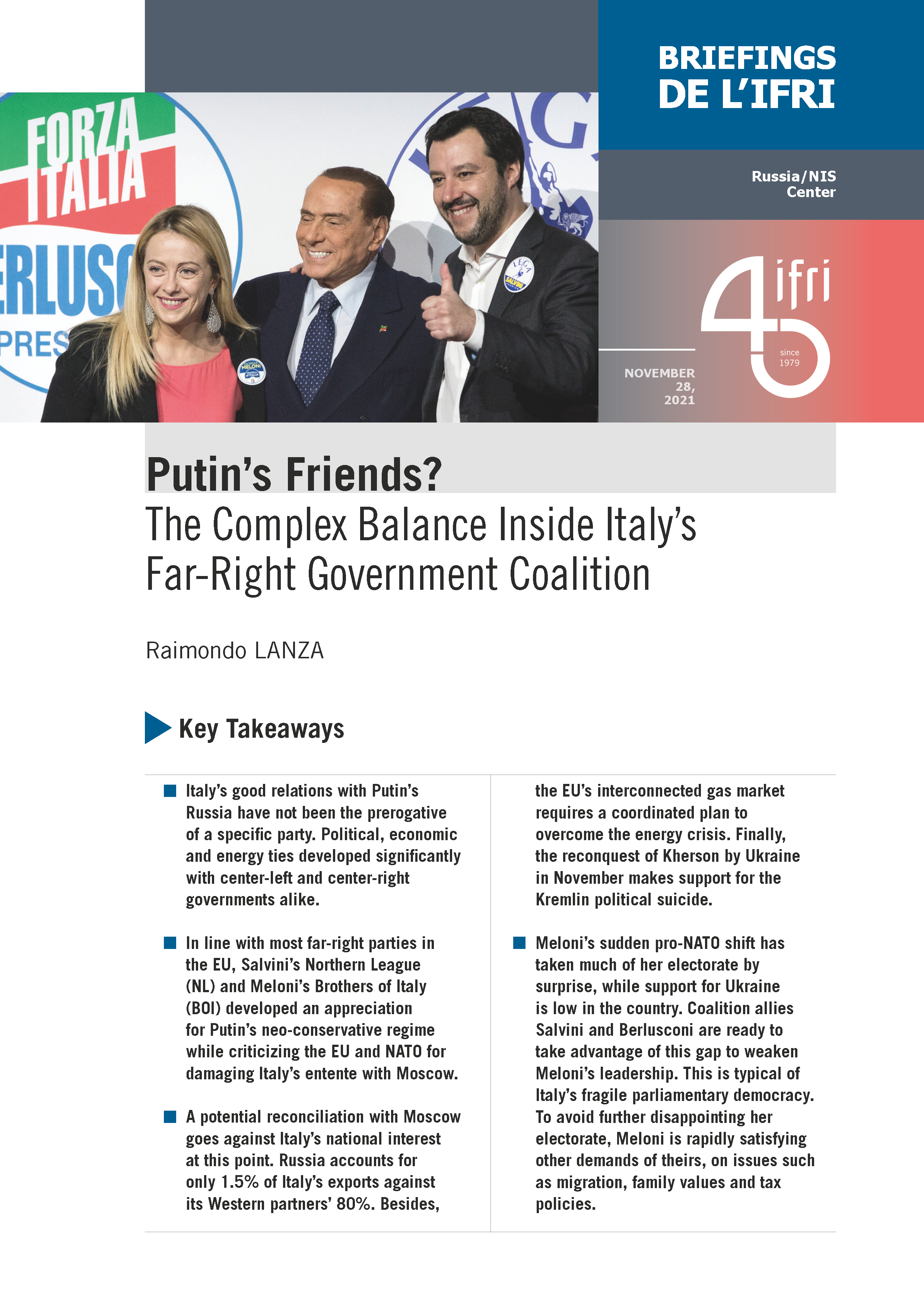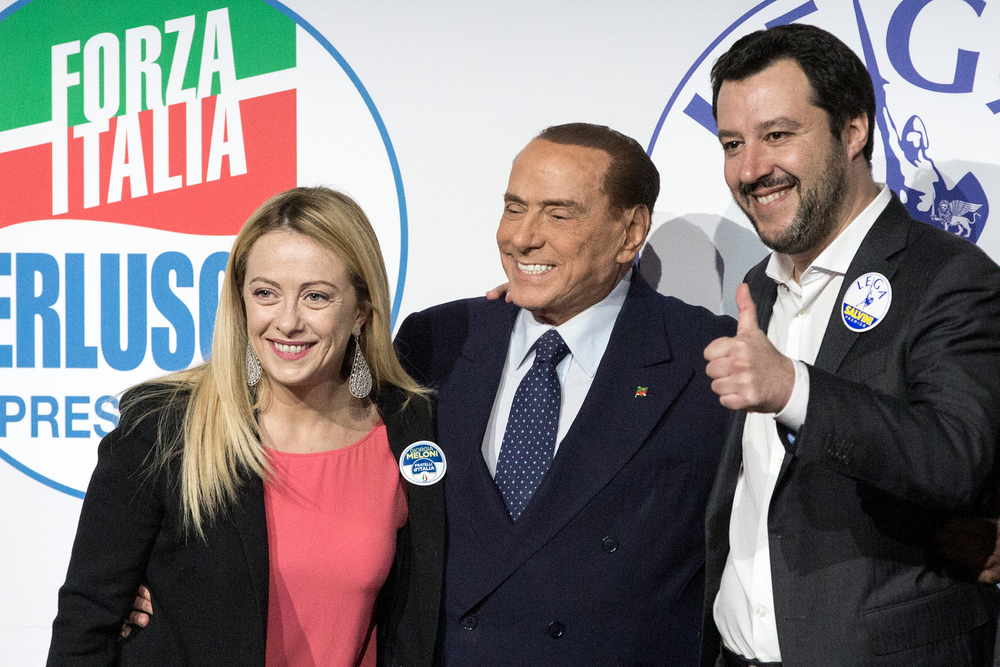Putin’s Friends? The Complex Balance Inside Italy’s Far-Right Government Coalition

Italy’s new far-right government has been widely perceived as the potential weak spot of the anti-Kremlin European front following Russia’s invasion of Ukraine: traditionally pro-Putin politicians such as Matteo Salvini and Silvio Berlusconi are back in power. Yet, after Mario Draghi’s hawkish Euro-Atlantic government fell in July and Giorgia Meloni was looking forward to a probable victory, she immediately sided with the European Union and the North Atlantic Treaty Organization in a firm condemnation of Russia.

Key takeways:
- Italy’s good relations with Putin’s Russia have not been the prerogative of a specific party. Political, economic and energy ties developed significantly with center-left and center-right governments alike.
- In line with most far-right parties in the EU, Salvini’s Northern League and Meloni’s Brothers of Italy developed an appreciation for Putin’s neo-conservative regime while criticizing the EU and NATO for damaging Italy’s entente with Moscow.
- A potential reconciliation with Moscow goes against Italy’s national interest at this point. Russia accounts for only 1.5% of Italy’s exports against its Western partners’80%. Besides, the EU’s interconnected gas market requires a coordinated plan to overcome the energy crisis. Finally, the reconquest of Kherson by Ukraine in November makes support for the Kremlin political suicide.
- Meloni’s sudden pro-NATO shift has taken much of her electorate by surprise, while support for Ukraine is low in the country. Coalition allies Salvini and Berlusconi are ready to take advantage of this gap to weaken Meloni’s leadership. This is typical of Italy’s fragile parliamentary democracy. To avoid further disappointing her electorate, Meloni is rapidly satisfying other demands of theirs, on issues such as migration, family values and tax policies.

Available in:
Regions and themes
ISBN / ISSN
Share
Download the full analysis
This page contains only a summary of our work. If you would like to have access to all the information from our research on the subject, you can download the full version in PDF format.
Putin’s Friends? The Complex Balance Inside Italy’s Far-Right Government Coalition
Related centers and programs
Discover our other research centers and programsFind out more
Discover all our analysesThe Caspian Sea as an Emerging Energy Hub : Potentials and Limitations
This report analyzes the prospects of the Caspian Sea region — and its key actors except for Russia and Iran — becoming an important energy hub serving the needs of the European Union (EU).
The European Union's Strategic Test in Georgia
The political crisis brewing in Georgia is of an existential nature for the country. What is at stake is Georgia's future as a democratic and sovereign European nation (EU).
Commanders of Putin's Long War: Purged, Reshuffled and Disgruntled
The trend of reshuffling the Russian top military command in the course of a fast-evolving and far from successful war has progressed unevenly both across the Armed Forces’ structures and in time. The rationale for and timing of the abrupt cadre decisions made by Commander-in-Chief Putin often defy logical explanation, and the rare official clarifications are no more informative than the usual information blackout.
Russian Military Manpower After Two and a Half Years of War in Ukraine
In addition to a military victory in Ukraine, the Russian leadership is planning to build up sizable troop formations for a possible conflict with NATO in the Baltic region and the Kola Peninsula. In particular, current plans aim for the military manpower to grow by about 350,000, reaching a total of 1.5 million soldiers and commanders. In the context of the current conflict in Ukraine, this cannot be accomplished without a new wave of mass mobilization.








